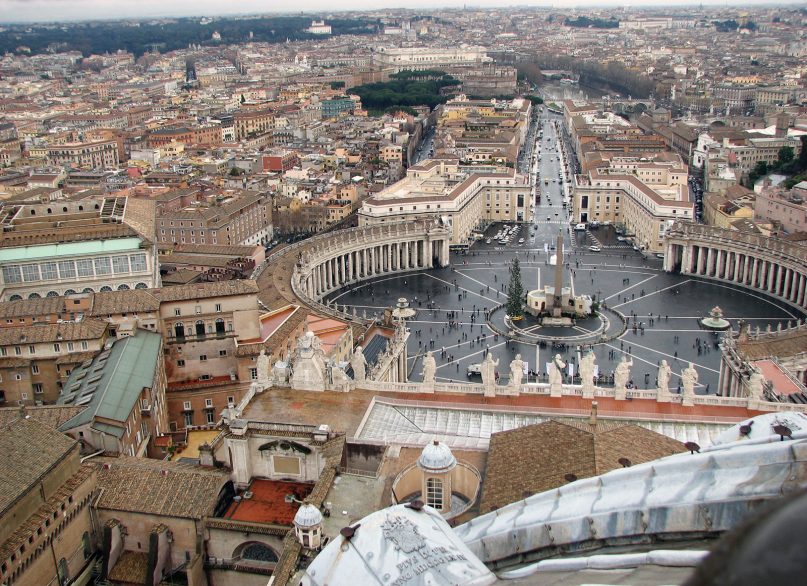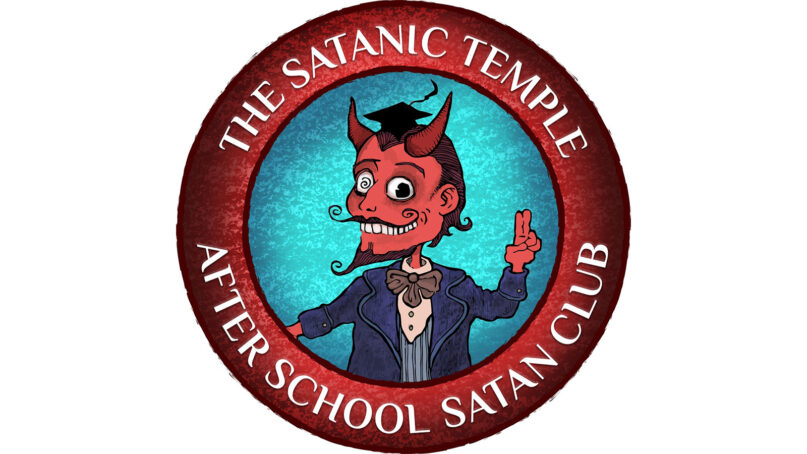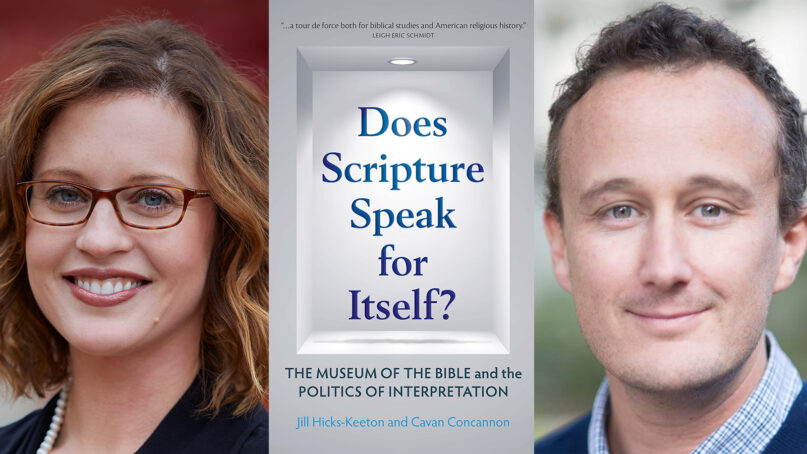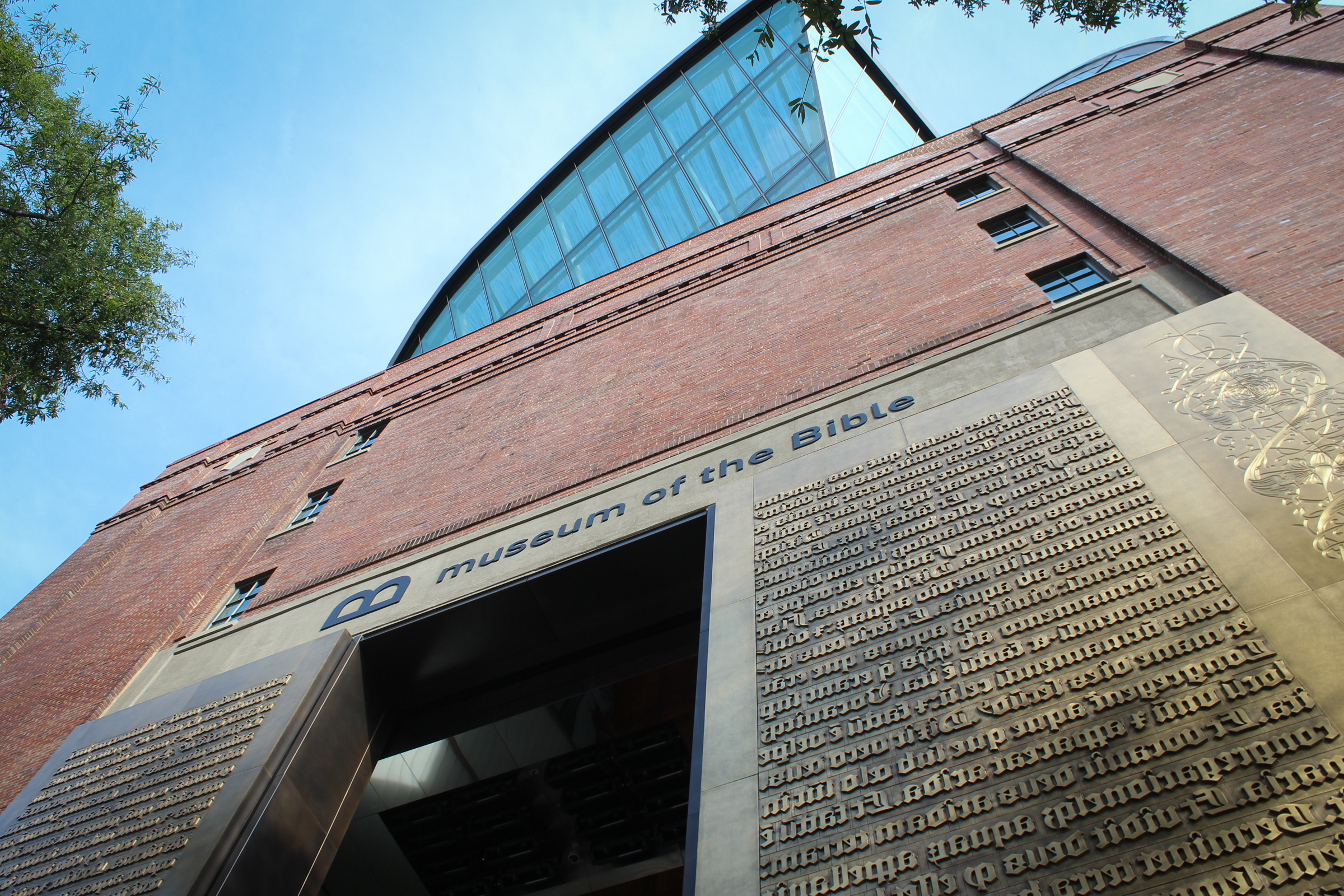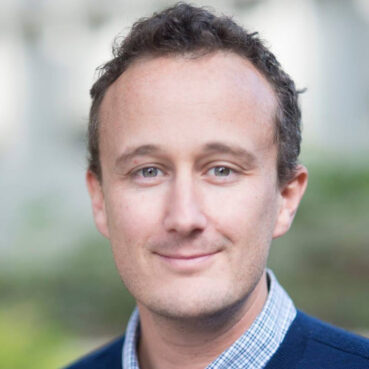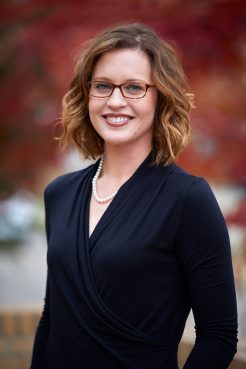
Nick Fuentes, right-wing podcaster, center right in sunglasses, greets supporters before speaking at a pro-Trump march, Nov. 14, 2020, in Washington. Former President Donald Trump had dinner Nov. 22, 2022, at his Mar-a-Lago club with the rapper formerly known as Kanye West, who is now known as Ye, as well as Fuentes, who has used his online platform to spew antisemitic and white supremacist rhetoric.(AP Photo/Jacquelyn Martin, File)
(RNS) — In the days after his recent dinner with former President Donald Trump, the rapper Ye, formerly known as Kanye West, reflected on the experience in a video posted to Twitter. Speaking to an associate, Ye said his own exchanges with Trump were tense. But as they dined, he said, the former president was practically glowing about someone else at the table: Nick Fuentes, the white Christian nationalist whom Ye had brought with him to Mar-a-Lago.
“Trump is really impressed with Nick Fuentes,” Ye said in the video, which has since been deleted.
A few seconds later, Ye pivoted to a different topic: faith.
“Since we know, and all the Christians in America that love Trump know, that Trump is a conservative, we’re going to demand that you hold all policies directly to the Bible,” Ye said.
While the meeting at Trump’s club drew national outrage because of Fuentes’ antisemitic and white supremacist views, it was a win for an extreme subset of Christian nationalists who knit together virulent anti-immigrant and anti-LGBTQ sentiment, opposition to abortion and, in many cases, overt forms of antisemitism and white nationalism.
This cadre of media-savvy, mostly right-wing Catholics are exacting a growing allegiance from far-right political figures and groups. While some, including Fuentes, have attached themselves to seemingly quixotic causes such as Ye’s own nascent presidential bid, the dinner at Mar-a-Lago showcased how they have succeeded in gaining entree for their vision of American politics.
RELATED: How the Capitol attacks helped spread Christian nationalism in the extreme right
A key figure in the movement is Milo Yiannopoulos, a far-right agitator who reportedly helped set up the Trump meeting, and whom Ye referred to as a campaign staffer in a recent video. (Yiannopoulos clarified to Religion News Service in an email this week that “there is no campaign at present” in a legal sense.) Once associated with the right-wing website Breitbart, Yiannopoulos faded from prominence around 2017 after several scandals, one spurred by a video showing him singing karaoke as white supremacists in the audience cheered and gave Nazi salutes.
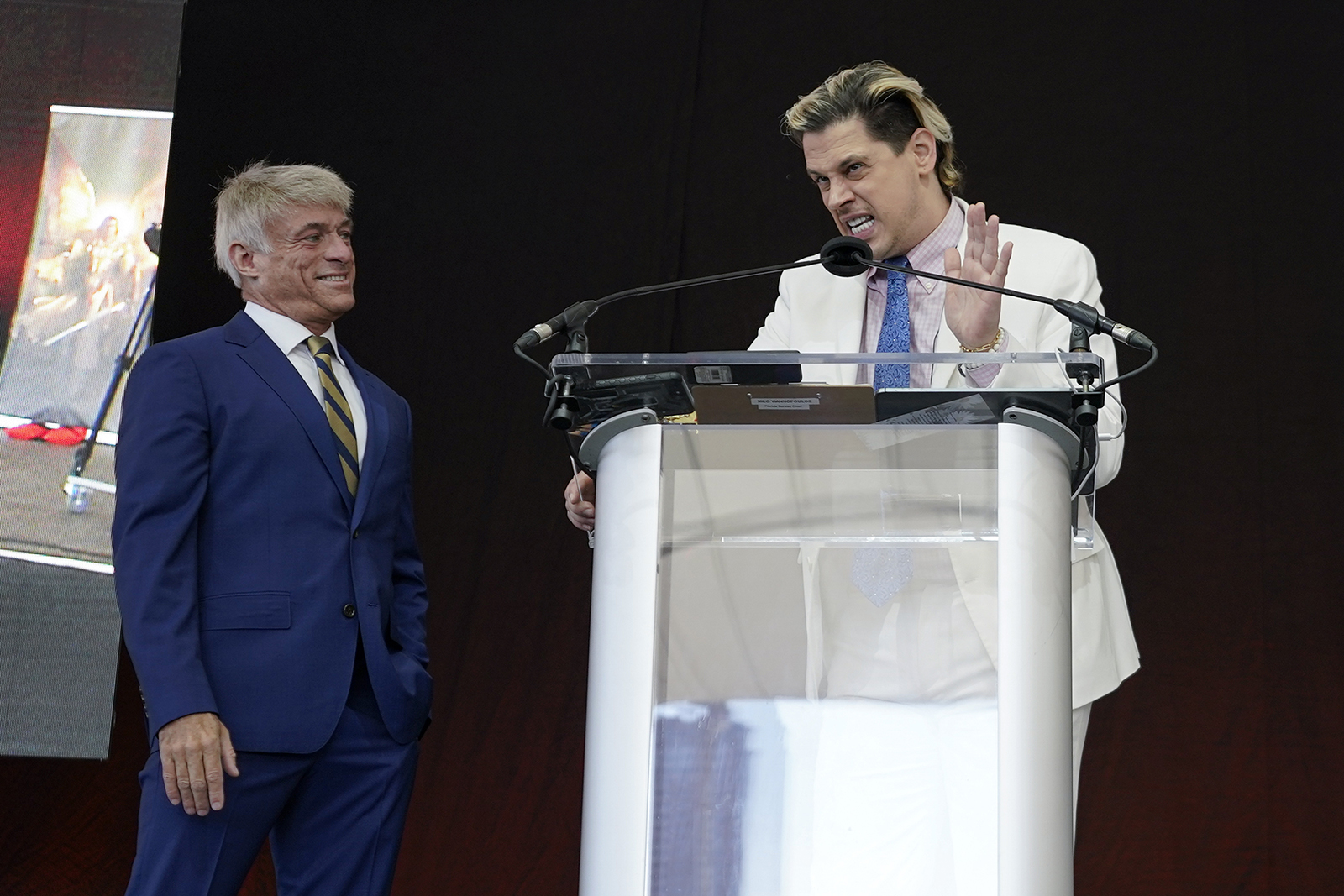
Michael Voris, left, founder of Church Militant, listens as activist Milo Yiannopoulos speaks during a rally outside of the Baltimore hotel where the United States Conference of Catholic Bishops was holding its Fall General Assembly meeting, Nov. 16, 2021, in Baltimore.(AP Photo/Julio Cortez)
He has since recovered his standing as a connector of various far-right Catholic voices with right-wing politicians. His recent ascendance is partly thanks to Michael Voris, head of the hyperconservative Catholic outlet Church Militant. Decried by critics as racist and homophobic, the digital talk and news outlet, based in Michigan, originally used the word “Catholic” in its name until its local archdiocese publicly pressured it to stop doing so.
In an interview with RNS in April, Voris pointed to a Church Militant interview with Yiannopoulos in which Voris pressed him to explain how he reconciles his homosexuality with his Catholic faith. According to Voris, Yiannopoulos called him years later to thank him, describing his question as a “challenge” that set him on a new spiritual path that eventually resulted in his identifying as “ex-gay” and embracing a more conservative form of Catholicism.
Voris, who has built a reputation as an anti-LGBTQ crusader, also claims to have abandoned homosexuality. He revealed in 2016 that for most of his 30s he “lived a life of live-in relationships with homosexual men,” but has since reverted back to Catholicism and now “abhor(s) all these sins.”
Both men often tie the Catholic sexual abuse crisis to homosexuality. Yiannopoulos, even before abandoning his gay identity, spoke publicly about being a survivor of sexual abuse by a priest. (A 2011 John Jay College of Criminal Justice report concluded that claims that homosexuality fueled the sex abuse crisis are not borne out by statistical evidence.)
Yiannopoulos began regularly appearing on the Church Militant website and in 2021 emceed a protest the group staged outside a gathering of the U.S. Conference of Catholic Bishops in Baltimore. Voris said he has also served as Yiannopoulos’ occasional spiritual adviser.
“I just give him further instruction in the faith,” Voris told RNS in April. The two had another session slotted for later that month, he said, when Voris planned spend “three or four hours” at his house schooling Milo on Catholic sacramental theology.
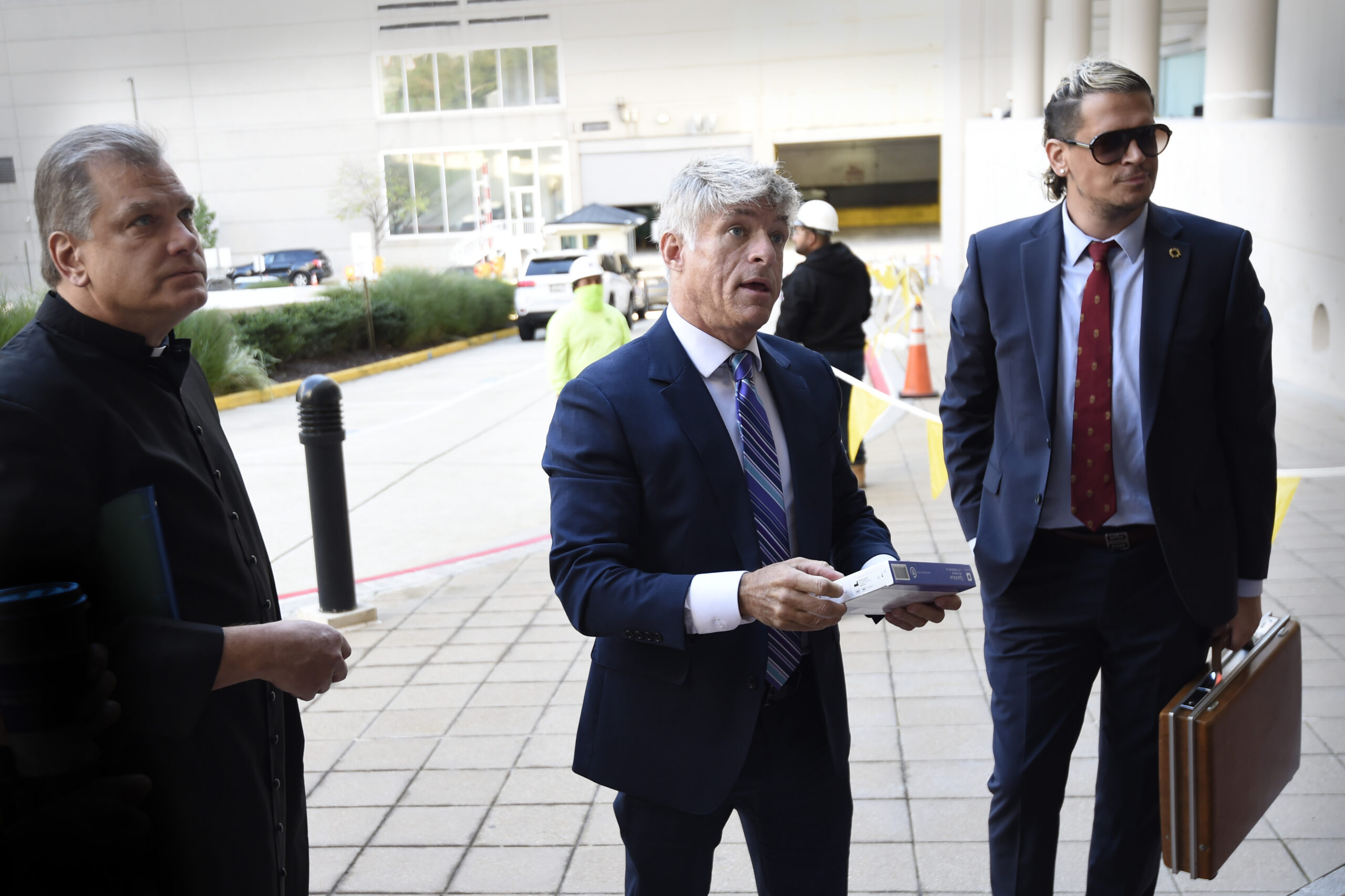
The Rev. Paul Kalchik, from left, St. Michael’s Media founder and CEO Michael Voris, center, and Milo Yiannopoulos talk with a court officer before entering the federal courthouse, Sept. 30, 2021, in Baltimore. A federal judge blocked Baltimore city officials from banning the conservative Roman Catholic media outlet from holding a prayer rally at a city-owned pavilion during a U.S. bishops’ meeting in November. (AP Photo/Gail Burton, file)
Voris and Church Militant distanced themselves from Yiannopoulos on Monday, tweeting out a statement saying he “has never been an employee of Church Militant.” The statement acknowledged Yiannopoulos’ early work for the website but added ”since then (and unrelated to us) Milo has re-entered the world of political activism of which we have no comment.”
Yiannopoulos has also forged a relationship with Fuentes, who founded America First — an advocacy group and media enterprise — after dropping out of Boston University at age 18. Fuentes, now 24, traffics in memes celebrating Christian nationalism, often linking it to Catholicism.
During a livestream in June, Fuentes advocated for “Catholic Taliban rule in America,” explaining that such a regime would ban same-sex marriage and contraception. His followers, known as Groypers, were a consistent presence at anti-vaccine and anti-abortion rallies in 2021, often holding aloft crucifixes and chanting “Christ is king!”
People wearing America First-branded gear were also among those who stormed the U.S. Capitol and entered the U.S. Senate chamber, although there is no evidence Fuentes was part of the riot himself.
Aside from the Yiannopoulos connection, Church Militant has begun to echo Fuentes’ rhetoric. Earlier this year, Voris published a video in which he referred to young people who “style themselves as an America first approach,” arguing they should ultimately put “faith first” because doing so will allow “everything else” to fall into place. Another video directed at “young Catholics with an eye to political battle” railed against Protestantism, declaring that “’Christ is king’ must ring loud across the land, and that means Catholic truth must be embraced.”
RELATED: As Catholic bishops gather, so do protesters on right and left
Voris’ approach to Christian nationalism appears to differ from Fuentes’, however. In a recent interview, he argued that the U.S. shouldn’t be ruled by one Christian sect, but that laws should be rooted in “Christian principle … because what’s the alternative?”

Nick Fuentes in a still from his “America First” livestream. Video screen grab
Asked in April whether he was addressing his comments to members of America First, Voris demurred, insisting he was using the term “Christ is king” in the historic Christian sense and speaking generally to “young, orthodox Catholics who, on the political spectrum, would count themselves as patriotic.” He said any connection to groups such as America First was “informal,” later adding he didn’t want to “embrace any group.”
He also decried violence, calling it “repugnant to my Catholicism.”
Even so, America First leaders have been interviewed on Voris’ website, and Salon reported in May that Church Militant’s youth-focused movement was attempting to recruit from the ranks of America First supporters. Voris did not deny “linking arms” with groups such as America First for such purposes as staging protests outside Planned Parenthood clinics.
Yiannopoulos and Fuentes eventually brought into their orbit U.S. Rep. Marjorie Taylor Greene, a Georgia Republican whose outlandish statements have triggered fierce criticism from across the political spectrum. Greene, an ex-Catholic who was reportedly baptized in 2011 at the evangelical North Point Community Church, spoke in February at Fuentes’ America First conference. He introduced her by saying,“I want to say a very special thank you to Milo Yiannopoulos for making this happen.”
When Greene took the stage, she opened her remarks by citing her faith. “My name is Marjorie Taylor Greene, I am the daughter of the king, the one true living God, the Alpha and Omega, our Father in heaven. And I am a forgiven sinner, washed in the blood of our savior, Jesus Christ,” she told the crowd in Florida.
When people in the audience began chanting “Christ is king,” Greene replied: “Amen — Christ is king.”
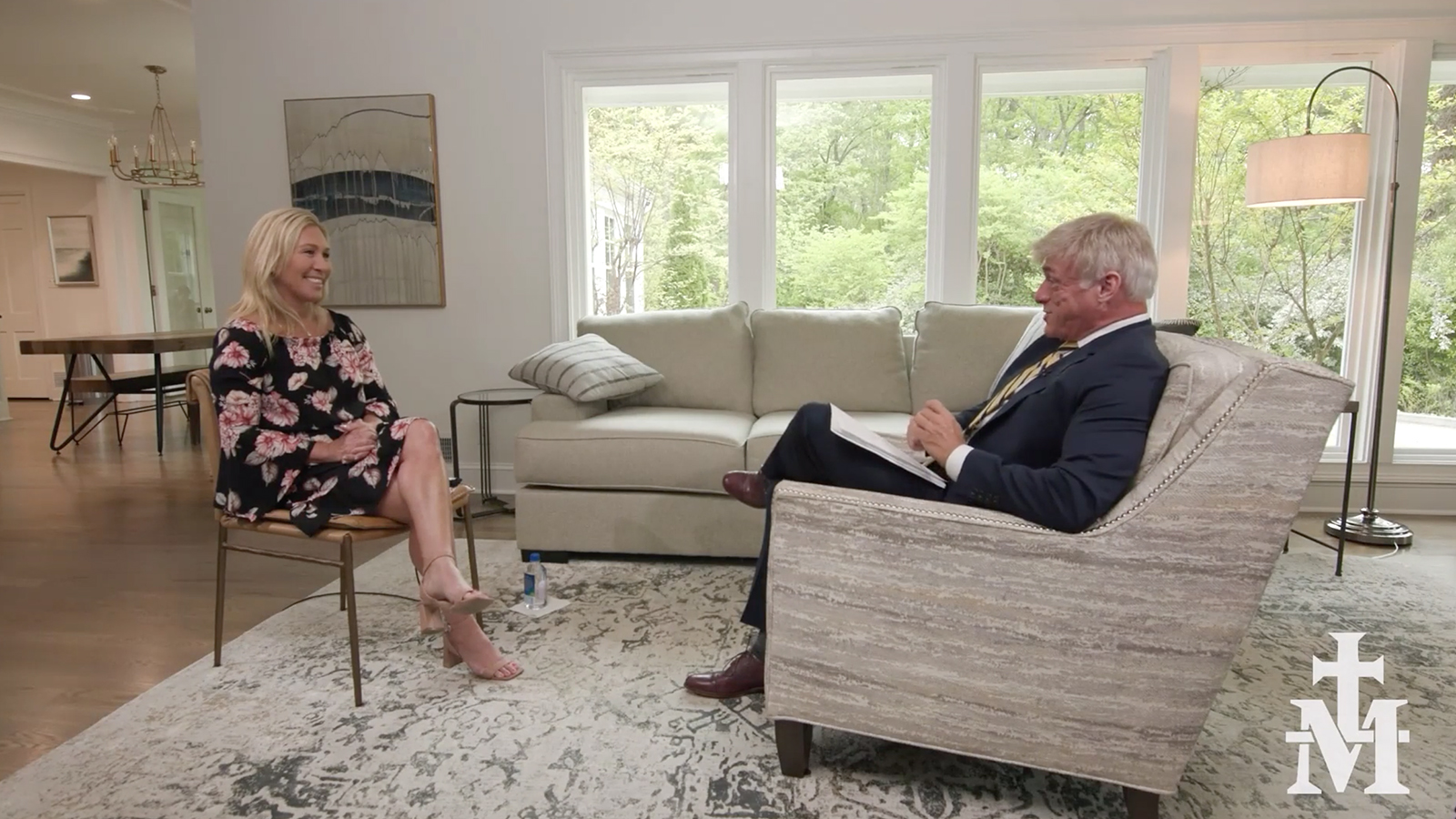
Rep. Marjorie Taylor Greene, R-Ga., speaks with Church Militant head Michael Voris during an interview. Video screen grab
Greene was quick to distance herself from Fuentes after the event, but in an hourlong Church Militant interview two months later she attacked U.S. Catholic bishops who lend aid to immigrants as an example of “Satan controlling the church.”
Asked about her remarks shortly afterward, Voris defended Greene to RNS, saying, “I don’t think the congresswoman went far enough, really.”
Yiannopoulos told RNS in an email this week that he helped broker the interview, and around the time it took place, he posted a video of himself on the social media site Telegram eating a Smucker’s Uncrustable Peanut Butter and Jelly Sandwich in what appeared to be the same house where the conversation was filmed.
Greene soon began identifying as a Christian nationalist. Yiannopoulos told RNS he identifies the same way, although he differentiated his views from those of Greene. “I’m somewhere closer to a Catholic Integralist than, say, Marjorie, who just wants a return to authentic 1776 America,” he said.
Yiannopoulos has since left a position as Greene’s intern to join with Ye. Fuentes now appears to be part of their team: In addition to traveling with Ye to Mar-a-Lago, Fuentes reportedly read aloud a message from Yiannopoulos over the weekend signaling he was joining the campaign.
“My last super chat ever because the next cash I send will be your paycheck,” Fuentes said, reading Yiannopoulos’ message. “And see you at the office on Monday, brother!”
RELATED: Who is Trump and Kanye’s dinner companion, Nick Fuentes?
Ye’s affiliation with Fuentes and Yiannopoulos appears linked to faith. In the days leading up to their dinner with Trump, Fuentes posted an image on Telegram depicting Ye and him shaking hands under the words “2 Most Banned in USA.” Between them is a cross, underneath which the line “Jesus is King” — also the title of a recent Ye album — is repeated five times.
Since the meeting, Fuentes has posted a video of Ye saying he continues to look for people who could be a better president than himself, but has yet to find anyone.
“Trump would be a great president but he’s gotta put God first in everything he does,” Ye says.
The same video also appeared on Yiannopoulos’ Telegram page. Two days earlier he posted a message celebrating the new campaign, saying, “it’s dawning on me tonight what a powerful and deadly alliance I have assembled—and how gloriously and effectively we can serve God.”

Ye, Donald Trump and Nick Fuentes. File photos
The precise dimensions of Ye’s religious beliefs are unclear, though he often invokes God and Jesus in public appearances and organized a series of gospel music “Sunday Services” in 2019. But more recently his thoughts on faith have taken on new dimensions: His antisemitic remarks that cost him licensing deals with Gap and Adidas appeared to echo the beliefs of a subset of Black Hebrew Israelites. In October, he tweeted a desire to go “death con 3” on Jewish people, adding, “I actually can’t be Anti Semitic because black people are actually Jew.”
On Thursday (Dec. 1), Ye invoked his faith repeatedly during an appearance with Fuentes on conspiracy theorist Alex Jones’ show “Infowars.” With Fuentes frequently agreeing with Ye’s remarks and referring to a “Jewish mafia,” Ye insisted people need to “stop dissing Nazis all the time” and referred to Planned Parenthood as the “New World Order population control.” Fuentes, for his part, called for a “Christian party.”
Ye, wearing a mask the covered his entire head and calling himself a “baby Christian,” at one point apologized to Yiannopoulos, who was presumably offstage, for misquoting Scripture. Ye also read from a Bible that sat on the table in front of him throughout the interview.
Fuentes discussed their meeting with Trump at length, and Ye aimed to influence Jones’ listeners in their attitudes toward the former president. Among other things, he goaded Trump to put faith at the center of his new campaign.
“The worst thing that could come from this is that our leaders are held to Christian values, not Zionist values,” Ye said.
This story was produced under a grant from the Stiefel Freethought Foundation.
Who is Trump and Kanye’s dinner companion, Nick Fuentes?
(RNS) — When supporters of former President Donald Trump rallied near the White House on Jan. 6, 2021, a boisterous pocket of young men waving “America First” flags broke into a chant: “Christ is King!”
It was one of the first indications that Christian nationalism would be a theme of the Capitol attack later that day, where insurrectionists prayed and waved banners that read “Proud American Christian.”
The chant also announced the presence of followers of Nick Fuentes, the 24-year-old white supremacist and Christian nationalist leader who dined Tuesday evening (Nov. 22) with Trump and the rapper Ye, also known as Kanye West, at Mar-a-Lago, Trump’s home and resort in Florida.
Fuentes’ appearance at Trump’s table has brought criticism for the former president, who had only a week before formally launched a new campaign for the White House. The dinner apparently caused embarrassment in the Trump camp: Hours after reportedly saying that Fuentes “gets me,” Trump now claims he didn’t know who Fuentes was.
RELATED: How the Capitol attacks helped spread Christian nationalism in the extreme right
Fuentes’ notoriety has been growing since the then-18-year-old Boston University student attended the 2017 Unite the Right rally in Charlottesville, Virginia, where neo-Nazis and other white supremacists marched to protest the removal of Confederate statues from the city’s public spaces. At the time, Trump said there were “good people on both sides” of the clashes that followed, in which a counterprotester was killed.
Fuentes claimed that he had received death threats on his return to Boston, and he left college to begin a media career as the host of “America First with Nicholas J. Fuentes,” a livestreamed TV show that often echoed Trump’s anti-immigrant fulminations.
But while Trump sees the “America First” movement largely in terms of protecting U.S. trade and guarding the nation’s borders, Fuentes explicitly calls for the preservation of European American power. A Catholic, Fuentes has celebrated the idea of “Catholic Taliban rule” and, in March of 2021, told an audience at his America First conference that the United States, which he called “a Christian nation,” will cease to be America “if it loses its white demographic core and if it loses its faith in Jesus Christ.”

Nick Fuentes, center, speaks to supporters of President Donald Trump during a pro-Trump march Saturday, Nov. 14, 2020, in Washington. (AP Photo/Jacquelyn Martin)
Fuentes has also denied the Holocaust on his America First livestream and has said that, as non-Christians, Jews have no place in Western civilization. West, who recently lost a licensing contract with Adidas after he issued an antisemitic tweet, was said to have brought Fuentes along to Mar-a-Lago as a consultant to his own as-yet-unannounced White House bid.
Though Fuentes was subpoenaed by the House committee investigating the Capitol attack, and a person carrying an America First flag was spotted in the Senate Chamber during the insurrection, there is no evidence Fuentes entered the Capitol himself on Jan. 6. But Fuentes’ channeling of religious fervor in the name of right-wing extremism has played no small part in keeping Christian nationalist ideology alive in the aftermath of the insurrection.
Throughout the pandemic, Fuentes and his supporters, known as Groypers, were one faction in a large and amorphous network of anti-vaccine protesters and anti-abortion demonstrators. At 2022’s March for Life on the National Mall, Fuentes’ Groypers held crucifixes aloft.
Through his America First conferences, Fuentes has distinguished himself by luring establishment figures, including elected officials, to his cause. Arizona Rep. Paul Gosar, the keynote speaker at Fuentes’ America First 2021 conference, tweeted “Christ is King” the same day the congressman posted a widely condemned animated video that depicted him killing New York Rep. Alexandria Ocasio-Cortez.
Rep. Marjorie Taylor Greene spoke in February at this year’s conference. “My name is Marjorie Taylor Greene, I am the daughter of the king, the one true living God, the Alpha and Omega, our Father in heaven, and I am a forgiven sinner, washed in the blood of our Savior Jesus Christ,” she said in her remarks before the group.
When attendees began chanting “Christ is king,” she responded, “Amen — Christ is king.”
Both Gosar and Greene have since distanced themselves from Fuentes and his group. Now it is Trump’s turn to deflect an association with Fuentes.
The backstory behind Fuentes’ trip to Mar-a-Lago remains unclear, but the visit reportedly included efforts to maintain alignment between America Firsters and the former president. Fuentes publicly blasted Trump’s recent campaign announcement speech, calling it an “awful … abject, absolute failure” and declaring he was “reevaluating” his support for the business tycoon. According to Axios, Fuentes disliked what he characterized as the former president’s more cautious approach to politics and told Trump as much when they dined together last week.
